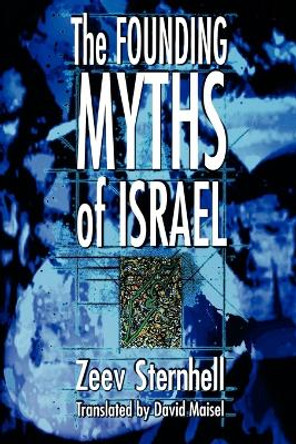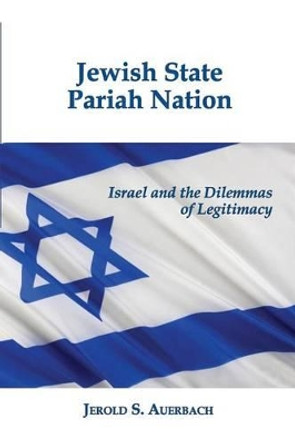Description
Can Israel be both Jewish and truly democratic? How can a nation-state, which incorporates a large national minority with a distinct identity of its own be a state of all its citizens?
Written by two eminent Israeli scholars, a professor of constitutional law and a historian, Alexander Yakobson and Amnon Rubinstein are the first to treat Zionism and Israeli experience in light of other states' experiences and in particular of newly established states that have undergone constitutional changes and wrestled with issues of minorities. Citing various European, constitutions and laws, the authors explore concept of a Jewish State and its various meanings in the light of international law, and the current norms of Human Rights as applied to other democratic societies compatible with liberal democratic norms and conclude that international reality does not accord with the concept which regards a modern, liberal democracy as a culturally "neutral" and a nationally colourless entity.
In light of the new political map in Israel and the prospect of future disengagement from the West Bank, Israel and the Family of Nations is essential reading for all those who wish to understand Israel's future challenges.
About the Author
Dr. Alexander Yacobson is a Senior lecturer in the history department of the Hebrew University of Jerusalem, Israel.
Prof. Amnon Rubinstein, is currently Provost and Dean of the Radzyner School of Law at the Interdisciplinary Center (IDC) in Herzlia. He is a former Minister of Education and a regular contributor to Israseli Dailies.
Reviews
'...it is an important book, whose ideas deserve to be widely heard' - The Economist, 2008
'The book is not a traditional pro-Israel polemic in the sense that it does not extol Israeli behavior, but seeks to point out that, in its basic definition and goals, Israel is well within the norms of democratic practice. In Yakobson's words, while "every state is unique, Israel is not 'exceptional' in the negative sense. It is not an abnormal democracy."
The book includes chapters on Israel's establishment and the UN debates on partition in 1947-9, when the international community voted for a "Jewish state"; the views of the Zionist movement on the character of the future Jewish state and the rights of the Arab minority; international law, human and minority rights and their application in different democratic countries; religion and state in Western democracies; the relationship between nation-states and their national minorities; along with other issues that come up in the intellectual debate over Israel's legitimacy.
In dealing with the argument equating Zionism with colonialism - a favorite in both academia and Arab politics - the authors once again bring homegrown Israeli anti-Zionists into the ring. ' - The Jerusalem Post, 2008
'In a Sophisticated discussion of notions of citizenship, deeply informed by the new literature on multiculturalism, Yakobson and Rubinstein provide array of examples that belie Israel's exceptionalism' - SA Jewish Report, April 2009
'Israel and the Family of Nations is a timely and necessary book. It is scholarly but accessible and should provide a basis for intelligent debate about israel and for defending its institutions and foundations' - Seth J. Frantzman, Middle East Quarterly, Fall 2009
'This book is like a breath of fresh air to all those interested in the image of Israel as a nation-state and in the issue of its Jewish and democratic character.' - Shlomo Avineiri, 2003
'...a thoughtful and provocative study that sheds real light on Israel's approach to civic equality, in the context of the behavior of other democracies. The book will be a valuable addition to courses on the Israeli-Palestinian conict, Middle East politics, or liberal democratic theory and practice.' - Michael Galchinsky, H-Human-Rights, September 2010
Book Information
ISBN 9780415781374
Author Alexander Yakobson
Format Paperback
Page Count 256
Imprint Routledge
Publisher Taylor & Francis Ltd
Weight(grams) 470g







